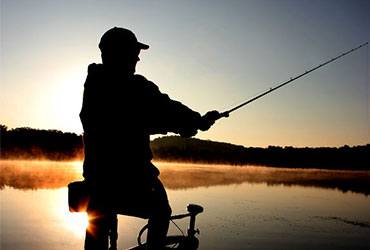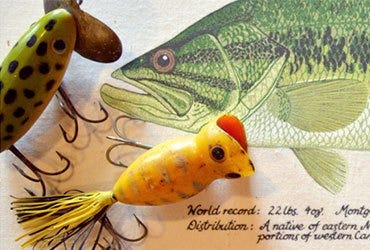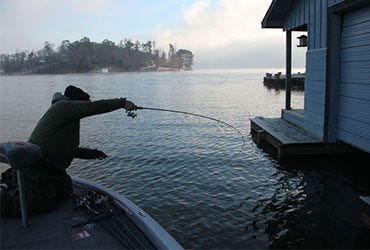- Aug 7, 2020
Slip Floats for Bigger Summer Bluegills
Walk the banks of a typical pond, slow-moving stream or lake cove this time of year, and you’re apt to see bluegills holding in shady spots and close to brush, stumps, weed edges or any other cover. Most won’t be very large, though. What you cannot see is that many bigger ‘gills probably are holding in similar spots and still fairly close to the bank, but a little farther out and just deep enough to stay out sight.
The good news is that those larger bluegills (plus closely related sunfish, such as shellcrackers, longears and redbreasts) are typically easy to find and catch and offer fun summer fishing. A small slip float, such as a Thill Americas Favorite Series float (1/2-inch, pencil, slip), is the main tool for delivering an irresistible live cricket or worm just off the bottom in a little deeper water. You’ll also need a float stop on your line to control depth, a split shot or two and a No. 6 or so hook.
Specific depths vary relative to overall bank pitch, water color, bottom make-up and availability of cover, but the fish will generally be near the bottom in 4 to 12 feet. Even the shallow end of that range stretches comfortable casting with a set float, but with slip float, there is no awkwardness in casting, and the bait goes exactly to the depth you set it for every time. It’s also simple to adjust depths by sliding your stopper on the line. If you aren’t getting bit, try working slightly deeper. If the float doesn’t stand up, you’re on the bottom. Set the stopper slightly shallower.
Some fish will hold around obvious cover, like tree branches, weed edges or dock corners. Others will hold near rocks or stumps you can’t see. Cast or pitch to the obvious stuff that’s just out from the bank, but also cast to open water directly out from where you see small sunfish or where you notice rocks or other cover on the bottom in the shallow margin.
Whether you’re walking the bank or fishing from a boat, fish in search mode initially. If your bobber doesn’t dance after a couple of minutes, twitch the rod a couple of times to move the bait slightly and make it dance. Wait another minute or so and then reel in and make another cast. As you fish, adjust your depth, vary distances of casts from the shore, and keep moving until you start getting bit.
When you do catch a fish or get a good bite, work that area thoroughly and take note of things like the cover, the slope and the depth. If you catch more, and they are the size you are seeking, stay put until they quit biting and then search for similar spots. Otherwise, keep searching and collecting clues as you go. With this simple approach, it shouldn’t be long before you figure out all you need to and can enjoy some fun fish-caching action.









